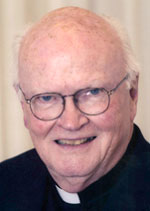There was, as everyone knows, compulsory military service during World War II. In exchange for each month spent in the military, veterans were entitled to two months of higher education — tuition, fees and books — in independent or public institutions of their choice, paid for by the federal government.
For those taking advantage of this opportunity, there was also a monthly living allowance. This was the so-called G.I. Bill of Rights, enacted into law in 1944 largely because members of Congress feared that there would be widespread unemployment of Great Depression proportions when the veterans of World War II returned to civilian life.
It turned out to be the greatest investment in human capital ever made in this country. And the return to Treasury — the higher taxes paid over the decades since 1945 in function of the higher incomes earned as a result of the higher education received — has been enormous. In effect, the program benefits proved over the long run to be self-financing.
What if we had a national service program in the U.S. today that included not just military service but elder care, child care, resource conservation, rebuilding the decaying urban infrastructure and more? What if we made the national service law applicable to all American men and women, ages 18 to 20? Their length of service would be two years.
The areas of service would include the military, thus putting the affluent young into uniform and ending the disproportionately large representation of low-income and racial-minority personnel in the now “all-volunteer” military.
Service could put the young in direct one-on-one helping relationships with the disadvantaged poor. Some of these activities would require away-from-home barracks living, as was the case with the Civilian Conservation Corps of the Great Depression years, or the boot camps and basic training centers operated by the military during World War II.
I think justification for requiring national service of the young today lies in the evident drift and purposelessness so many of them display. Their parents see it. Those who counsel them in high school or advise them in college see it. They show up in the data collected on drug abuse, crime and, to a small but frightening degree, in instances of youth suicide. Does this add up to a national emergency? I think it does.
The young are not needed today on farms or in factories. But they could be used in meeting unmet societal and environmental needs.
Many World War II vets took advantage of educational opportunities that prepared them for productive careers. They gained maturity and a sense of purpose during their service years. The nation benefitted not only from their service but as much or even more from their later lives, made all the more productive in subsequent decades thanks to education gained under the G.I. Bill.
Perhaps national service is worth considering as the Obama administration enters its second term. Policy wonks can apply their pencils to the budgetary arithmetic and speculate on whether it has to be compulsory in order to work.
***
Jesuit Father William J. Byron is university professor of business and society at St. Joseph’s University, Philadelphia. He is an army veteran of World War II who received his college education on the G.I. Bill.




Father Byron: Thank you for your article. I was drafted into the army in 1953 after college deferments and after discharge embarked on a career in social work through the GI Bill. I am grateful for that opportunity. robert e. young